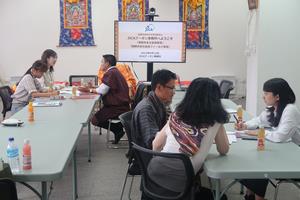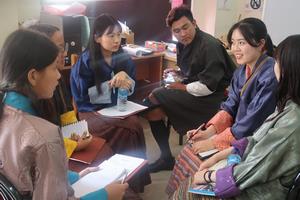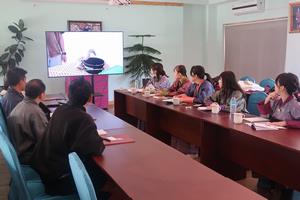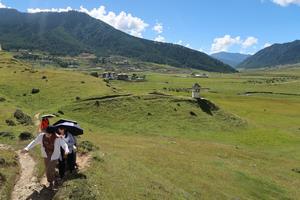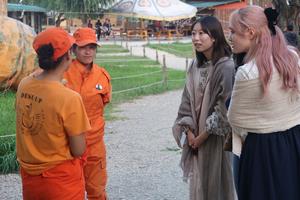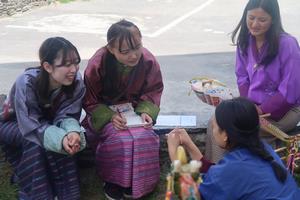- Global Collaboration Center
- Activity
- Report on Bhutan Study Tour (2023)
ページの本文です。
Report on Bhutan Study Tour (2023)
2024年3月11日更新
From September 11 to September 20, 2023, six students conducted a study tour to Bhutan as part of the Practicum for Convivial Global Society
Before the tour, from around the beginning of June, each student deepened their knowledge of Bhutan by learning about its history and current situation, attending a lecture by Mr. Suto, project formulation adviser at JICA Bhutan Office, etc., to set up a research topic, “Learning from Bhutan about the perspectives needed to form ecotourism'', “Can the ideals held by the Bhutanese people be achieved through GNH policy?” and “Changes in culture and lifestyle due to changes in agriculture due to globalization,” “What kind of ‘abundance’ has development brought about in Bhutan?” “Actual state of laws and policies and citizens' awareness, changes, regarding gender gap,” and “’Exit’ for higher education in Bhutan”. Based on their research topics, six students prepared interviews and planned the locations they’d like to visit.
In Bhutan, we spent three nights in Thimphu, capital of Bhutan, two nights as a homestay in Phobjikha, and two nights in Paro, the city with the international airport. In Thimphu, we visited JICA Bhutan Office, the Bhutan Centre for Japanese Studies (BCJS), Royal Society for Protection of Nature (RSPN), and Bhutan Association of Women Entrepreneurs (BAOWE). Also, we visited Buddha Point, Memorial Chorten, and Tashichho Dzong to experience Bhutanese culture and Buddhist beliefs and interview citizens. In Phobjikha, we visited the RSPN Black-necked Crane Education Center to learn about the ecotourism and homestay projects being encouraged in Phobjikha. We also helped our homestay family with farm work and took a nature trail to a monastery called Gantey Gompa, where we learned about Bhutanese agriculture, Buddhist culture, and the natural environment of Bhutan. In Paro, we experienced a dotsho (hot stone bath) at a farmer's house where people live in a more developed environment than in Phobjikha and visited the Paro College of Education of the Royal University of Bhutan to interview 18- to 20-year-old students. We were able to learn about the Bhutanese people's patriotism, identity, loyalty to the King, and devotion to Buddhism by asking questions related to research topics during interviews and chats with citizens we met while traveling and resting.
Bhutan is sometimes referred to as a "Happiest Country," but I felt the need to rethink what happiness means after visiting the country. In the traditional Bhutanese way of life, people farmed to survive, and men and women shared household chores, gathering wood for wood stoves, and lived modestly without greed, according to Buddhist teachings. In addition, since there was no word for happiness in Dzongkha, the official language of Bhutan, the King often used the term "gatoto kitoto," a state of physical and mental contentment, when explaining to the people that development would be based on Gross National Happiness (GNH) scale. The term appears to imply a state of sufficiency rather than the highest state of being. In fact, many interviewees at the study tour said that being healthy is happiness. On the other hand, what does happiness mean to us Japanese? Although we, the Japanese, tend to focus only on academic background, job opportunities, and living with financial security, I believe that the Bhutanese emphasis on physical and mental health and family is not unrelated to the happiness of the Japanese people. Bhutan is certainly not an economically rich country by global standards, but it seems to excel in terms of values for gender equality, peaceful thinking, and hospitality compared to other countries. The study tour also made me rethink what human affluence and happiness are. I believe that my visit to Bhutan was such a significant experience that I can call it a turning point in my university life and in my future.
(Rimu Abe, third-year student, Department of Languages and Culture, Faculty of Letters and Education)





